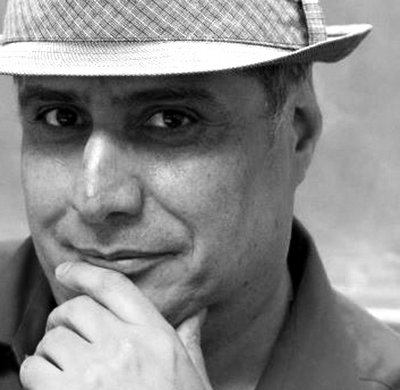
Last Update
June 12, 2020
Organisation
Unknown
Gender
Male
Ethnic Group
Unknown
Religoius Group
Shia
Province
Tehran
Occupation
Artist
Sentence
Four years imprisonment and five years of exile
Status
Released
Institution investigating
IRGC Intelligence
Charges
Conspiring against national security
Insulting the Supreme Leader
Propaganda against the regime
Mostafa Azizi Released
“As a teenager I took part in the revolution for a better life,” he told Iranian poet Sepideh Jodeyri in March 2012. “And then I saw that all those dreams were fading and bursting like bubbles. A fresh dictatorship was merely replacing the old one.”
Mojtaba Lofti is a scholar and blogger who has published articles in reformist newspapers. Before his arrest, he was an official in the public relations and communications section of Ayatollah Hossein-Ali Montazeri’s [a prominent Shia scholar and religious authority] office in Qom. In October 2008, he was arrested and sentenced to four years imprisonment and five years exile on the accusation of “propaganda activity against the state.”
Lofti’s writings were published on the website Naghshineh and in the papers Khordad and Fatah.
Lofti was an apprentice of Ayatollah Montazeri, the intended successor to the Islamic Revolution founder Ayatollah Ruhollah Khomeini before he was sidelined in 1989, and he served as an official in Montazeri's office.
Lofti was arrested for the first time in May 2004 on the accusation of “disclosing the confessions of the Chain Murders,” a series of assassinations of political and intellectual dissidents which was orchestrated by and blamed on the Iranian spymaster Saeed Emami, and was arrested by security agents in Qom.
Lofti was detained for four four months and was then sentenced to three years and two months imprisonment by the Special Clerical Court of Qom, on April 14, 2004. However, due to his illnesses, bronchitis and severe cluster headaches, this prison sentence was reduced to a fine of 650 million rials and he was freed.
On September 28, 2008, Lofti was arrested for the second time and he spent 50 days in solitary confinement.
Lofti’s case, heard the Special Clerical Court of Qom presided over by Judge Hoseein Bahrami, saw him charged with “propaganda activity against the state” by disseminating Ayatollah Montazeri’s ideas and “collaborating with foreign and counter-revolutionary networks.”
Lofti was sentenced to four years imprisonment and five years exile from Qom. Media critical of the Iranian state have said that Lofti was arrested due to his connection with Montazeri. Lofty was later granted medical leave from the clerical section of the Langroud Prison in Qom due to his respiratory issues. But he was required to report to the prison in his own time. Despite this, when he reported to the prison on the morning of April 7, 2010, he was prevented from leaving.
Saeed Lofti, the son of Mojtaba Lofti, distributed a letter which detailed the conditions of his father on April 19, 2010. He wrote “They gave my father four years’ imprisonment and five years’ exile. They said he was a spy in the Supreme Leader’s house. They said he had 32 ‘vulgar’ CDs but I really don’t know of a film that has a prominent and living director that addresses poverty or vice in this country that has now become vulgar. They shoved my crying mother back into the house and hit her. Without permission they entered the house and made my father get up when he had his oxygen tank attached to his mouth. They took the films. I don’t know how to describe what happened, perhaps Operation Walfajer [a series of Iranian assaults during the Iran-Iraq War] is best.”
Whilst in prison, Mojtaba Lofti faced fresh charges. Lofti was accused of attending the funeral of Ayatollah Montazeri during his prison leave. Eventually, on July 9, 2010, after enduring 21 months of imprisonment in Qom’s Langroud Prison, he was released and exiled for a period of five years to the city of Ashtian in Iran’s central province.
Mojtaba Lofti spoke about his sentence with Journalism is Not a Crime in February 2020 and said that after completing his period of exile in Ashtian, he returned to Qom where he now lives.